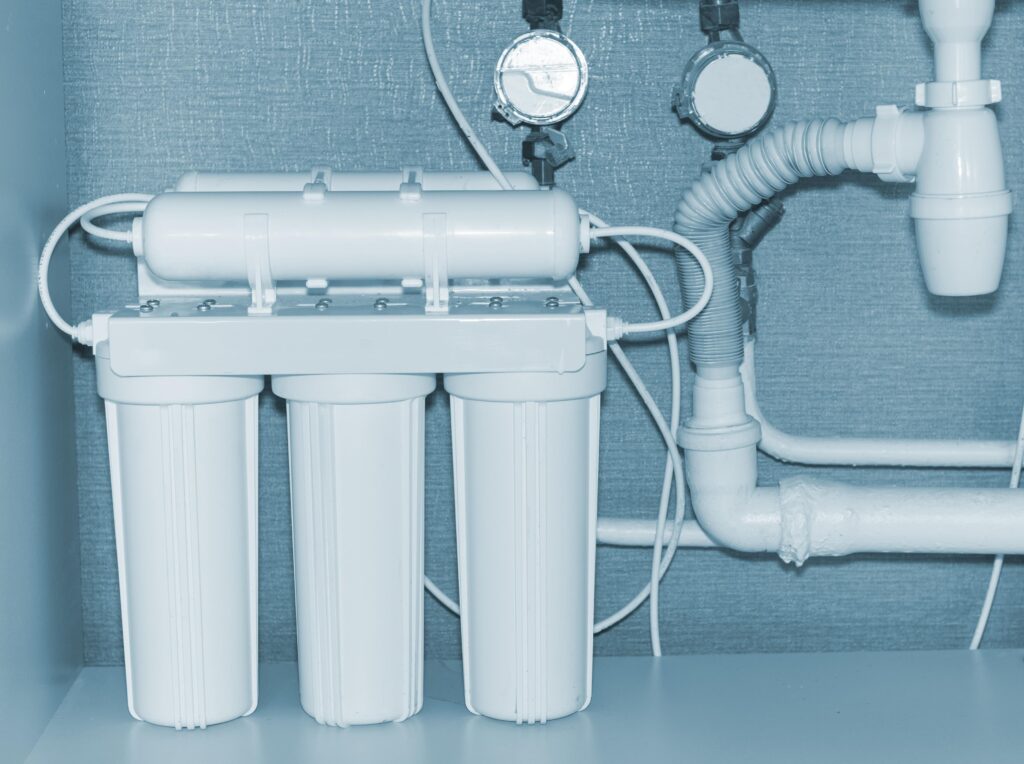From Ground to Glass: How Water Filtration System Installation Changes Well Water Quality

Clean, fresh water is essential for every home, but well water often comes with challenges like sediment, hard minerals, and contaminants. Installing a water filtration system can transform the quality of your well water from inconsistent to crystal-clear and reliable. This process doesn’t just improve taste; it enhances safety and protects your plumbing and appliances from wear caused by untreated water.
Whether dealing with high iron levels, unpleasant odors, or bacteria, the right filtration system tackles these issues at the source. Dive into how water filtration systems work, their impact on well water quality, and why this installation is a game-changer for homeowners seeking better water for drinking, cooking, and everyday use. A well-maintained filtration system ensures peace of mind, cleaner water, and a healthier home.
How does installing a water filtration system improve water quality?
Installing a water filtration system significantly improves well water quality by removing contaminants and enhancing safety and taste. Here are several ways in which a filtration system contributes to better water quality:
- Removal of Sediments: Filtration systems effectively capture sediments, silt, and particulate matter that can be present in well water, resulting in clearer and cleaner water.
- Reduction of Bacteria and Pathogens: Many filtration systems utilize UV disinfection or advanced filtration technologies to eliminate harmful bacteria, viruses, and other pathogens, ensuring the water is safe for drinking and household use.
- Removal of Chemical Contaminants: Water filtration systems can effectively reduce chemical contaminants such as pesticides, herbicides, and heavy metals. This is crucial for protecting health, particularly in common agricultural runoff areas.
- Improvement of Taste and Odor: Activated carbon filters in many systems can remove chlorine, volatile organic compounds (VOCs), and other substances contributing to unpleasant tastes and odors, making well water more palatable.
- Enhanced Mineral Balance: Some filtration systems can help maintain a balanced mineral content in the water, providing essential minerals while removing harmful elements.
Installing a water filtration system improves well water quality by removing sediments, bacteria, chemicals, and unpleasant tastes. This results in safe, clean, and great-tasting water for all household needs.
What contaminants are removed by a water filtration system in well water?
A water filtration system is essential for improving well water quality by removing contaminants affecting safety and taste. Here are some common contaminants effectively removed by these systems:
- Sediments and Particulates: Filtration systems can capture sand, silt, rust, and other particulate matter in well water, resulting in clearer and cleaner water.
- Bacteria and Viruses: Advanced filtration methods, such as UV disinfection and certain membrane technologies, can eliminate harmful microorganisms, including bacteria and viruses, that pose health risks.
- Chlorine and Chloramine: If well water is treated with chlorine or chloramine for disinfection, filtration systems can effectively remove these chemicals, improving taste and reducing potential health concerns.
- Heavy Metals: Filtration systems can reduce the concentration of heavy metals such as lead, arsenic, mercury, and copper, which can leach into well water from plumbing and surrounding soil.
- Pesticides and Herbicides: Many filtration systems can remove agricultural chemicals that may contaminate well water due to runoff from nearby fields.
- Volatile Organic Compounds (VOCs): Activated carbon filters effectively remove VOCs, which can come from industrial sources or chemical spills.
Water filtration systems are crucial for removing contaminants from well water, ensuring safe, clean, and great-tasting water for household use.
How does water filtration affect the taste and safety of well water?
Water filtration significantly improves the taste and safety of well water, making it more enjoyable and safe for consumption. Here’s how filtration systems contribute to these improvements:
- Removal of Contaminants: Filtration systems eliminate contaminants, such as sediments, bacteria, heavy metals, and chemicals. This reduction in harmful substances enhances the safety of the water, ensuring it is free from pathogens and toxins.
- Improved Taste: Contaminants such as chlorine, sulfur, and organic materials can impart unpleasant tastes and odors to well water. Water filtration systems, particularly those with activated carbon filters, absorb these substances, resulting in cleaner, fresher-tasting water.
- Reduction of Hardness: Some filtration systems can help soften hard water by removing minerals like calcium and magnesium. This softening can prevent the bitter or chalky taste associated with hard water, making it more palatable.
- Enhanced Odor Control: Filtration systems can also remove odors caused by dissolved gases, such as hydrogen sulfide, giving water a rotten egg smell. By eliminating these odors, filtration systems greatly enhance the overall drinking experience.
- Peace of Mind: Knowing that the water has been filtered for safety and taste reassures households, encouraging increased water consumption and better hydration.
Water filtration improves the taste and safety of well water by removing contaminants, enhancing flavor, and providing users with peace of mind.
What are the long-term benefits of filtering well water through a professional system?
Filtering well water through a professional system offers numerous long-term benefits contributing to health, safety, and overall quality of life. Here are some key advantages:
- Enhanced Water Quality: Professional filtration systems remove harmful contaminants, including bacteria, heavy metals, and chemical pollutants, ensuring that well water remains safe for drinking and household use over time.
- Improved Taste and Odor: Filtered well water is more enjoyable to drink because it eliminates unpleasant tastes and odors associated with contaminants, encouraging better hydration and overall health.
- Health Benefits: Consistent access to clean water reduces the risk of waterborne illnesses and chronic contaminants-related health issues, promoting long-term well-being for all household members.
- Protection of Plumbing and Appliances: Filtering well water helps prevent mineral buildup and corrosion in pipes and appliances, extending their lifespan and reducing maintenance costs.
- Increased Property Value: Homes with professionally filtered water systems may have higher property values, as buyers often prefer homes with safe and great-tasting water.
- Environmental Sustainability: Utilizing a filtration system minimizes reliance on bottled water, reduces plastic waste, and promotes eco-friendly practices.
Filtering well water through a professional system provides long-term benefits, including improved water quality, health advantages, protection of infrastructure, increased property value, and environmental sustainability.
Improve Your Well Water: Install a Filtration System!
At Well Doctor LLC, we understand the importance of clean, safe water for you and your family. Installing a filtration system can dramatically improve your well water quality by removing harmful contaminants, enhancing taste, and ensuring your water is safe for consumption.
Our expert team is dedicated to providing customized solutions tailored to your specific needs, ensuring that you have access to the best possible water. With our advanced filtration systems, you can enjoy peace of mind knowing that your water is great-tasting and free from pollutants. Contact us today to enhance the quality of your well water!



